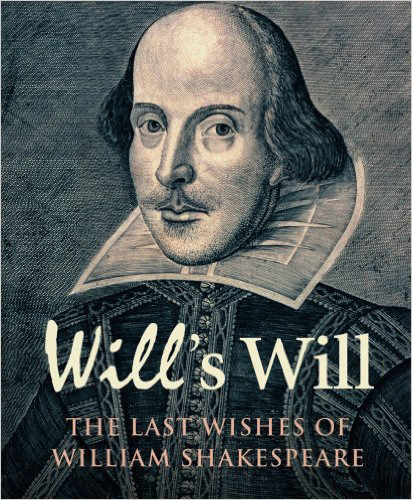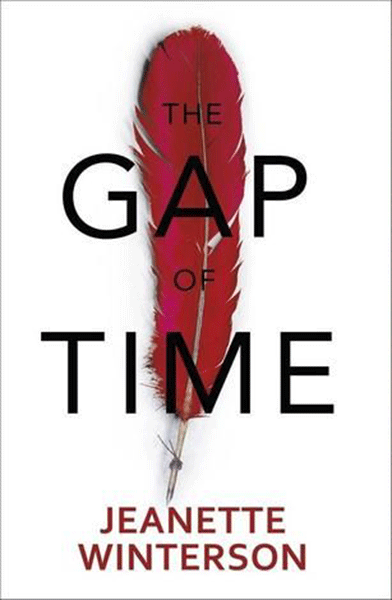The bookshop elves have emerged from the basement post stock take, slightly dazed and blinking against the light. We are not perhaps our sparkling selves but then you try counting 4089 pencils. Trust me, seen one pencil, seen them all.
So now it is time to think of books. Unless you have been holidaying with Tim Peake, you will be aware that April marks the 400th anniversary of William Shakespeare’s death. Naturally, we have stocked up on a range of titles on all aspects of the life and work of Britain’s most famous author. And we had so much to choose from: books on his life; books on his works; tomes about the Globe Theatre; hand-tooled leather editions of the sonnets; manga comics of Macbeth; Shakespeare’s Tips for Twerking (OK, I may have made that one up).
As Rosalind says, ‘Can one desire too much of a good thing?’ How will you choose?

Will’s Will by Simon Tressler
If you are planning on visiting the By me William Shakespeare exhibition at Somerset House (and you should, as it is a once in a lifetime opportunity to see a collection of original documents not normally housed together) then a copy of Will’s Will by Simon Tressler would be handy pre-visit reading or make a lovely souvenir. It includes a full transcript of the testament itself and examines the individual clauses to explore the life of the enigmatic playwright.
Another interesting approach is contained in 1599 and 1606, both by by James Shapiro. These take key years in Shakespeare’s life: 1599, the year of Henry V and Hamlet; and 1606, the year of Macbeth and Lear. By examining the zeitgeist (the art and politics, the concerns of the people) Shapiro shines a spotlight on the forces the influenced Shakespeare’s thinking at the time of writing. As Hamlet clearly demonstrates, plays illuminate reality and the reverse also applies.
For me, the most exciting of the offerings is Hogarth Press’ series of novels by noted writers each taking a different play and using it as a jumping off point for a unique work. William himself would have approved: he was never a man to balk at nicking a plot and making of it something truly his own. I like to think this is the tribute he would have chosen himself.
The lineup of authors is impressive: Howard Jacobson has revisioned The Merchant of Venice, Jeanette Winterson tackles A Winter’s Tale, Anne Tyler has The Taming of the Shrew, Jo Nesbo Macbeth, Tracy Chevalier Othello, Gillian Flynn Hamlet and Margaret Atwood The Tempest. The first two are out now and the rest will be treats to come over the next few years. I am always a sucker for a lovely set and this will be a modern classic (and, this is the clincher, the novels have truly beautiful endpapers). Don’t hold yourself back from pre-ordering the whole series.
Howard Jacobson is, as ever, concerned with the nature of Jewishness. In Shylock Is My Name the protagonist, Simon Strulovich, meets Shylock in a cemetery talking to his dead wife and takes him home. But is his Shylock real or a projection of Strulovich’s conscience? In this tale of ducats and daughters reset in celebrity Cheshire, the satire masks serious questions about patrimony and prejudice. And I assure you the nature of the bond here will make you both laugh and wince.
 A Winter’s Tale has never been one of my favourites (Measure for Measure, since you ask) but Jeanette Winterson’s The Gap of Time is a stunner. She has retained the emotional heart but updated the trappings, peopling her tale with hedge-fund managers, pop stars, video gamers and the obligatory lovers and throwing in arch references to modern movies. Her writing is beautiful; this is one of those novels where you keep thinking I must remember that phrase. And of course it is laugh out loud funny at times, which is not an easy trick to pull off in a story centering on a relationship car crash and the death of a child, where the happy ending leaves a lot unresolved.
A Winter’s Tale has never been one of my favourites (Measure for Measure, since you ask) but Jeanette Winterson’s The Gap of Time is a stunner. She has retained the emotional heart but updated the trappings, peopling her tale with hedge-fund managers, pop stars, video gamers and the obligatory lovers and throwing in arch references to modern movies. Her writing is beautiful; this is one of those novels where you keep thinking I must remember that phrase. And of course it is laugh out loud funny at times, which is not an easy trick to pull off in a story centering on a relationship car crash and the death of a child, where the happy ending leaves a lot unresolved.
Do try them both, remember even after 400 years ‘the play’s the thing’.